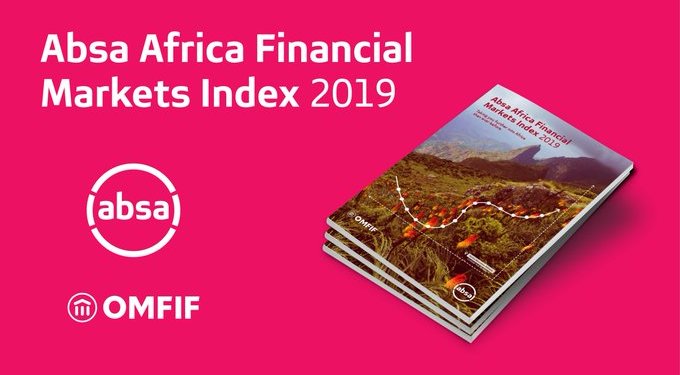
This week Absa Bank’s economic gurus were in town to talk about African financial markets. African markets should be of interest to us because for a long time Africa has been looking outwards for markets and promises of economic growth. But Absa, which wants to identify themselves as an African Institution have developed a wonderful index against which we can measure ourselves and compare like with like.
First to basics. An index is a numerical scale by means of which variables, such as levels of the cost of living, can be compared with each other or with some base number. In an index, you determine a base number and then compare the performance of different actors on the basis of variables in that index. Sort of like your child doing an exam. The exam consists of a set of questions on which each child is marked and given a score depending on how they answer (rate) on each of the questions (variables).
Absa’s African Financial Markets Index is in its third year and includes 20 countries now, of which Uganda is one. The index consists of six pillars which include (1) market depth, (2) access to foreign exchange, (3) market transparency and regulatory environment, (4) capacity of local investors, (5) macroeconomic opportunity and (6) property rights. For lack of space, I will not delve it all of them. Rather I will stick with the extremes which are telling.
On the upside, Uganda performed well on access to foreign exchange (3rd out of 20), and macroeconomic opportunity (5th out of 20). On the downside, Uganda performed poorly on capacity of local investors (15th out of 20) and property rights (12th out of 20). In absolute terms, Uganda’s performance was 10th out of 20 for 2019, just as it was in 2018.
The things on which we supposedly performed well like access to foreign exchange meant that we had a health foreign exchange reserve and good foreign exchange liquidity with no capital restrictions. Macroeconomic opportunity supposedly meant that we had been experiencing GDP growth and living standards were improving, while our debt servicing had remained within a manageable limit.
The things on which we performed poorly like local investor capacity speak to the fact that our stock markets are small and local investors do not have the capacity to raise funds through these markets. A more relevant (in my book) interpretation is that locals seem to be excluded from the enjoyment of the growth reported in the same index. The other measure on which we performed poorly is property rights. Applying (my own) lay man’s interpretation here again, the index is speaking to the fact our dispute settlement systems are unreliable and a threat to foreign direct investment.
As with all indices, it is easier to generalize than to localize, thus the proxies (a figure or variable that can be used to represent the value of something in a calculation) seemed more abstract (idealistic) than real. For example, data from the Judiciary’s annual performance report for 2018/19 shows that a case in the Supreme Court takes 1,036 days to be disposed, the Court of Appeal takes 1,572 days on average and the High Court takes 802 days on average to dispose of a case. Obviously the Absa index cannot capture such minutiae detail but you get the drift. You go to our courts at your own peril.
Following the presentation of the results, a panel discussion ensued, but I do not have the space to do it justice. However three takeaways from the discussion that stuck with me were that a) if we continue to be obsessed with things that do not matter to the average Ugandan, middle income status will continue to be elusive, b) trust is a very uncommon thing in our corner of the world and c) madness is doing the same thing over and over again and expecting different results!
Samuel Sejjaaka is Country Team Leader at MAT ABACUS Business School. Twitter @samuelsejjaaka



